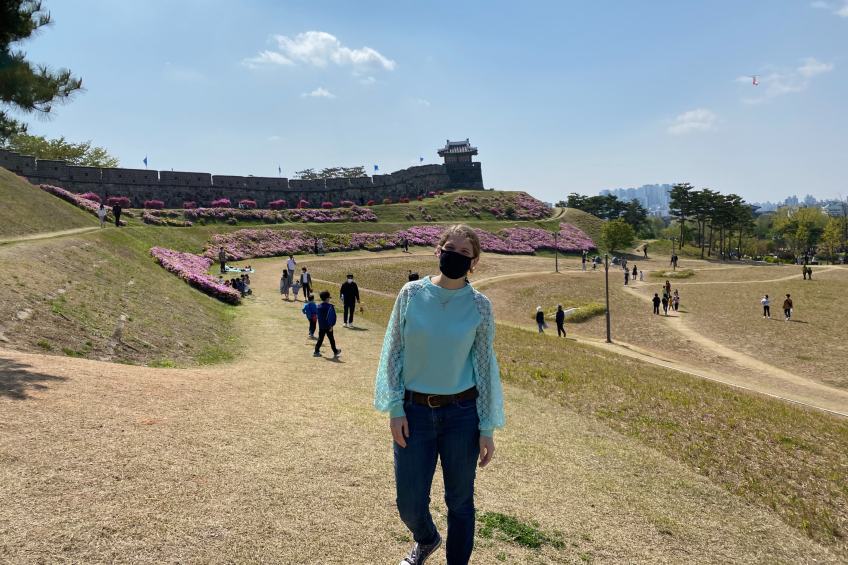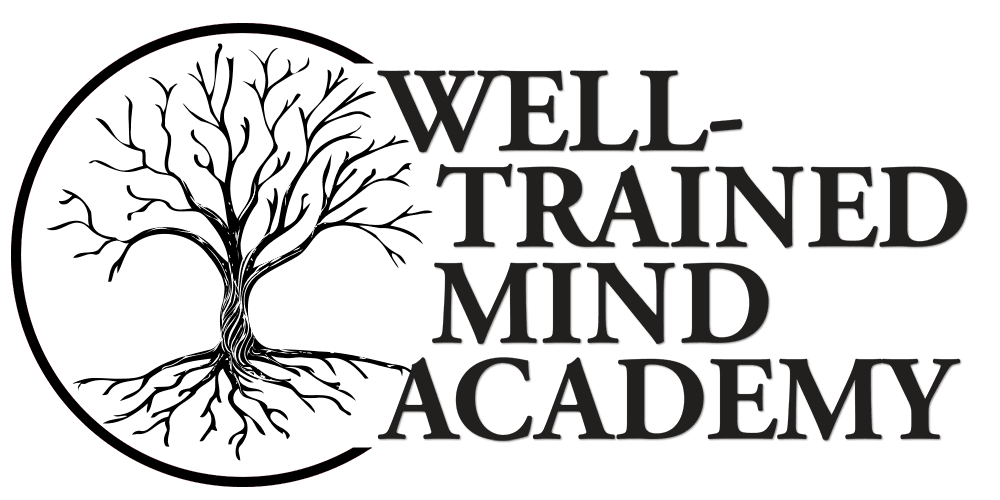WTMA World Language Instructor Rebecca Mengle Reflects on Learning a New Language While Overseas

Knowing that I could take my job with me when we got the news we’d be stationed in South Korea was a huge relief. In my two years of teaching for the Academy, we moved across the globe three times, as we were previously stationed in Germany before returning to the United States. Unlike most military spouses, I could easily take my job with me! With this new move, we looked forward to exploring another part of the world. In addition, I decided to set a goal for myself: to achieve at least intermediate fluency in a language very unlike English. Now nearing the end of my first year of living abroad in South Korea, I reflect on how learning Korean has presented many challenges, revelations, and reminders to me as a world language teacher.
Language Learning Methods I Tried
With Korean, I was truly starting at zero when my feet hit the tarmac. I had no knowledge of the language, save some words for my favorite dishes like bulgogi and kimbap. Even worse, I did not even understand how to read Hangul, the Korean written language. I debated for a while over where to start. Should I familiarize myself with the written language or learn basic phrases for survival? At that same moment, I was also balancing graduate school and teaching my Spanish courses online at very odd hours.
Passive Exposure
My language-teacher brain whispered that I could naturally learn so much through pure immersion from living off the military installation. I could enjoy a silent period of simply being exposed to the language until I became confident enough to start using it myself. However, I did not account for the fact that much of what I encountered off-post was far beyond comprehensible to me. I even tried watching Korean dramas but quickly felt it was futile. I had no foothold without any contextual background nor words that sounded like English to help me along. A couple of months into living in South Korea, I was awkwardly communicating through a translation app at a weekly market while trying to buy fish. It was at this point that I realized I could not achieve my goal through this passive approach to language learning.
Language Software Programs & Videos
I downloaded Duolingo and Rosetta Stone and subscribed to YouTube channels designed specifically for teaching people Korean. I tried to dedicate an hour each day to one of these resources, figuring that a regular schedule would keep me motivated and that I would make progress with ease. Unfortunately, after a month or two of using this approach, I did not gain much more confidence in my ability to communicate for real purposes, as I did not have many opportunities to apply what I was learning in my everyday life. I felt my vocabulary was increasing, but this meant nothing if I had no one to practice with. I was embarrassed to admit defeat as a world language teacher; everyone assumed I would easily pick up a new language.
Online Synchronous Course
So, I did what my students do — I found a community. Our local community center was advertising a Level 0 class that was to take place online once a week for eight weeks. I knew this was going to be my last chance to make meaningful progress towards fluency. By the end of the course, I gained the confidence I desired as I learned how to read Hangul with ease and understand the basic grammar rules to start communicating. I also reflected on the way I was taught and how I could grow as a teacher from that experience.
Applying My Language Learning Experience to My Teaching
One lesson that stuck out was the importance of repetition. I had two different instructors, and the first, the one that taught us how to read, embraced repetition to an extreme degree. We would look at a letter on the screen, she would say it, and then she would proceed to call on different people in our class at random to repeat it. We would do this with letters, syllables, and then eventually whole words. It almost felt like overkill until I realized that all that repetition was what has made reading Hangul so automatic for me. It’s easy for a world language teacher to feel that repetition can be boring and thus avoid it. Still, it is necessary to help students achieve communicative automaticity — the ability to speak off the cuff without too much preparation — associated with fluency.
I also contemplated the way our second teacher, the one who helped us through the rest of the course, purposefully used grammar explanations to help us make sense of the confusing rules we encountered. This is one of the missing elements that made my previous resources incomplete and, at times, dreadfully confusing. I know as a teacher that having our students notice patterns is valuable and can be even more meaningful than having students memorize rules outright. Strategic use of grammar explanations gave me the confidence to work with the language confidently.
Using My Korean Language Learning Experience to Support My Spanish Students
I hold these lessons with me as I prepare my Spanish lessons for this school year and hope that my students will feel as much confidence and support as I felt from taking a formal language learning course. I will also remember all the fear and nerves I felt the first couple of months when interacting with Korean nationals and how it is okay to have a silent period to absorb all the newness of the language. During the critical onboarding time, the language I provide for my students must be simple and comprehensible with lots of symbols and body language to help with communication. Otherwise, I risk decreasing their confidence at the very beginning of their journey.
What is next for me? I plan to take more classes at my community center and join a language exchange group that practices Korean and English with native speakers of both languages. And of course, I am working to put myself out there to meet new Korean nationals and take the risk of speaking in Korean. I’m nervous about putting myself out there, but I can’t give up the wonderful real-world experience at my fingertips!
By Rebecca Mengle, Spanish Instructor
Rebecca Mengle has been teaching at the Well-Trained Mind Academy since 2019. She believes in highly interactive online learning experiences, providing students with enough exposure to vocabulary and grammar concepts to produce their own language confidently and appropriately. In her online classes, the main learning target is always to apply what is learned in class to the real world.

